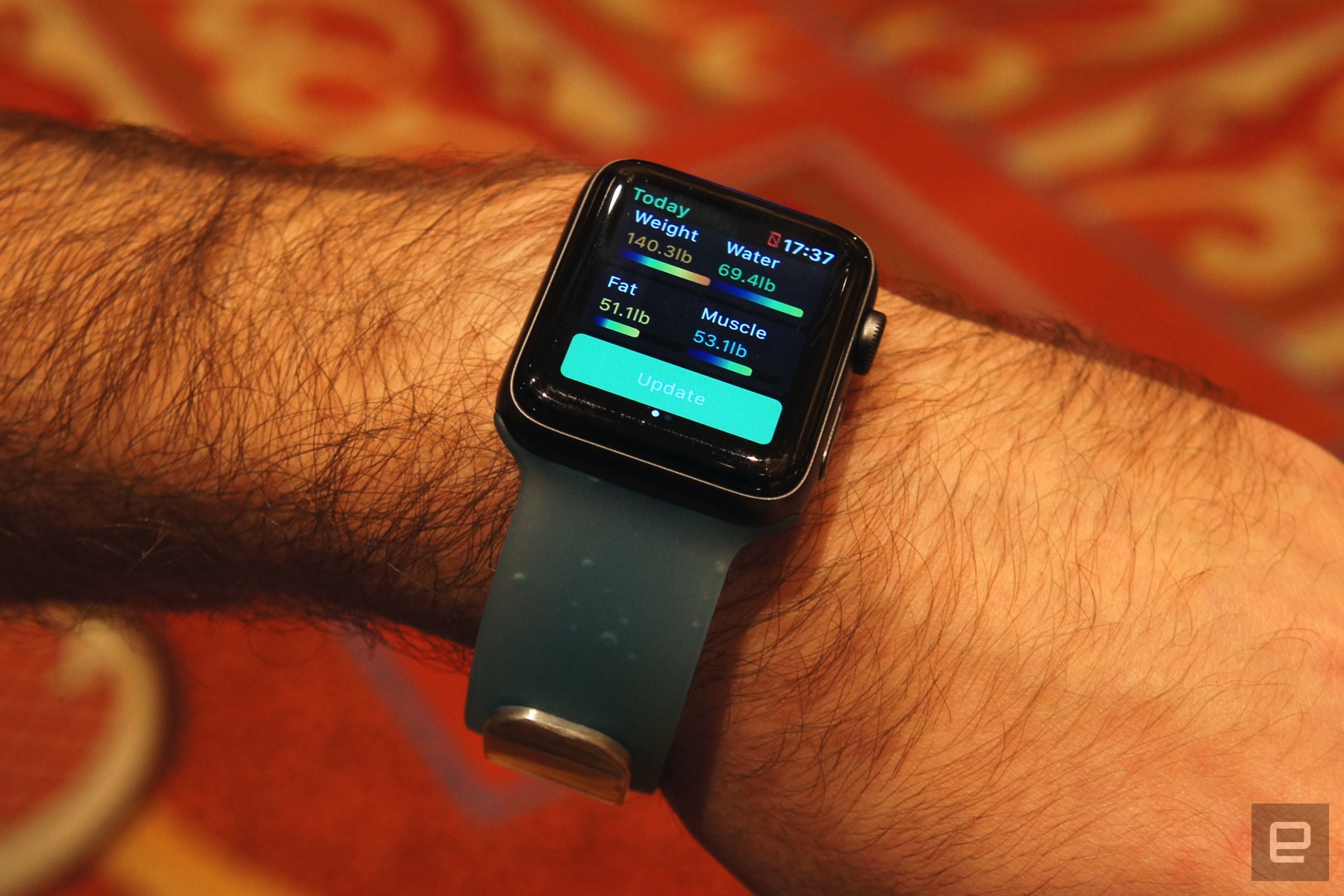Tag Archives: bioimpedance
Aura squeezes its fitness band into an Apple Watch ‘Smart Strap’
 In May Aura closed a relatively modest $109,000 Kickstarter for its Band, a fitness tracker that it says uses biompedance analysis to monitor "fat, muscle mass, minerals, and body water." We spoke to the people behind the Band, who said it is availab...
In May Aura closed a relatively modest $109,000 Kickstarter for its Band, a fitness tracker that it says uses biompedance analysis to monitor "fat, muscle mass, minerals, and body water." We spoke to the people behind the Band, who said it is availab...
Jawbone’s $50 Move Clip-on Fitness Tracker and $180 UP3 Wristband Tracker are Now Available for Pre-order
Researchers use bioimpedance as a biometric, let health monitor devices know who you are
Wouldn't it be great if fitness and medical gadgets automatically knew who was wearing them? Researchers from Dartmouth have come up with a new way to provide health monitors just such an ability using a tiny electric current and a bioimpedance sensor. You see, each person's body provides a different amount of opposition to electrical current, so bioimpedance can be a unique biometric identifier. The researchers' idea is to create a bracelet that uses bioimpedance readings to recognize its wearer in a secure, unobtrusive manner and communicate that identity to other wearable devices.
Using such a bracelet, "the devices discover each other's presence, recognize that they are on the same body (and transitively learn from the wrist device whose body), develop shared secrets from which to derive encryption keys, and establish reliable and secure communications." As opposed to other biometrics or password authentication, bioimpedance readings can be taken passively, which is much more appealing than remembering passcodes or scanning fingerprints and retinas. For now, the researchers have created an eight-electrode proof-of-concept bracelet, but its accuracy leaves something to be desired -- it correctly identifies its wearer only 80 to 90 percent of the time, whereas fingerprint recognition has a failure rate of less than 1 in 1,000. So, we're a ways off from bioimpedance-based security, but research is ongoing, and you can learn all about it at the source below.
Filed under: Wearables, Science
Researchers use bioimpedance as a biometric, let health monitor devices know who you are originally appeared on Engadget on Thu, 09 Aug 2012 20:29:00 EDT. Please see our terms for use of feeds.
Permalink Technology Review |
Technology Review |  USENIX | Email this | Comments
USENIX | Email this | Comments 
